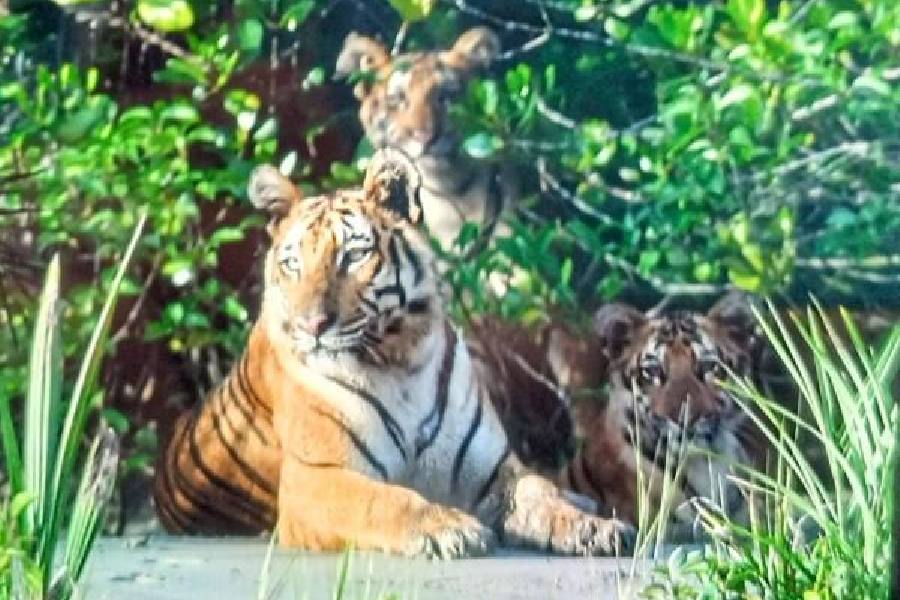A honey collector who had ventured deep into the forests in the Sunderbans was attacked by a tiger on Saturday morning.
Tapan Khara, 57, who hails from Bhubaneswari village, had set out in his boat to gather honey along with six others when he was attacked by the tiger from behind, a senior forest official of the South 24-Parganas forest division said.
Khara has suffered injuries on his nape, shoulder and thighs.
“Khara was admitted to a primary health care centre in Jamtala. He is conscious and we had a word with him. He said the tiger had taken his entire group by surprise and they had no clue that it was hiding in the dense undergrowth,” said Milan Mondal, the divisional forest officer of South 24-Parganas.
Later in the day, Khara was shifted to a hospital in Kolkata.
Another forest official said: “The rest of Khara’s group managed to drive the tiger away using bamboo sticks and one of the oars. The men fought the tiger for around 10 minutes before it fled.”
Khara’s group had set out early on Friday and were moving inside the forests of the Ajmalari 3 compartment when the tiger attacked.
Mondal said Khara’s boat has a valid licence and the paperwork to collect honey.
Like every year, more than 200 men have been granted the licence to collect honey from the forest. This year honey collection started on March 28.
The Sunderbans is spread across 10,000sqkm, a little over 4,000sqkm of which is in India, the rest is in Bangladesh. The Indian Sunderbans is split between the STR (Sunderban Tiger Reserve) and the South 24-Parganas forest division.
The STR covers 2,585sqkm. It is made of the Sunderbans National Park (East and West), which is the core area, and the Sajnekhali Wildlife Sanctuary and the Basirhat Range, which form the buffer zones.
Once out in their boats, the honey collectors eat and sleep on their boats. These small boats are stocked with food, fuel and other essentials to last the men for at least 10 days. They enter the forest, harvest honey and return to the boats.
Most honey collectors hail from different villages in the Sunderbans which include Katakana, Barnham, Samsara Nagar, Kalitala, Hemnagar, Kumirmari, Jharkhali Kaikhali, Kultali, Maipith and Deulbari among others.
The collectors sell the honey directly to the forest department.
The honey is then refined, packaged and sold by the West Bengal Forest Development Corporation.
